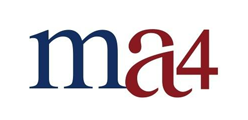ma4 is a proud partner in the Missouri Aging Services Collaboration which was recently chosen by ACL (Administration for Community Living) to be one of three final winners of the Social Care Referrals Challenge – and to be named as a Bonus Phase Winner!
ACL ANNOUNCEMENT 10/27/22:
ACL is proud to announce the final winners of the Social Care Referrals Challenge. Launched in March 2020, the competition sought IT solutions to support health care systems and community-based organizations in partnering to provide holistic health and social care for older adults and people with disabilities.
These partnerships are growing in both number and importance as demand for seamless integration of health care and social services continues to grow. However, lack of interoperability between the systems used by these organizations can lead to a lack of information sharing between partners, duplicative systems, and extra work for staff. Teams participating in this competition demonstrated how these barriers can be overcome through collaboration between health IT vendors, health care systems, and the aging and disability networks.
The three-phased challenge sought to catalyze development and optimization of interoperable and scalable technology solutions that leverage national standards for data exchange and common formats for resource directories. A bonus round was created to address taxonomy mapping, which emerged as an additional challenge early in the competition.
Multi-stakeholder teams that included IT platform developers, leaders of state agencies and community-based organizations (CBO), health care providers, and payers competed for a total of $1 million in award prizes. Challenge teams successfully demonstrated approaches to closed loop referral exchange and technical adoption of open Application Programming Interfaces (APIs) for resource directories through the Open Referral initiative, specifically the use of Human Services Data Specifications (HSDS) and related mapping to Health Level Seven International (HL7®) Fast Health Interoperability Resources (FHIR®) profiles for standardized, open resource directories that allow for lookup and retrieval of resources by any state, CBO, or referral vendor. Challenge teams also have effectively tested the use of the Gravity Project ’s coded terminologies to support the capture and exchange of social risk data across the health and human services ecosystem while promoting and preserving individuals’ privacy, safety, and security. In the bonus round, participating teams presented approaches to mapping taxonomies and terminologies across various social care domains to enable the use of standardized data and promote cross-sector care coordination.
- Grand Prize Winners:
The Missouri Aging Services Data Collaborative is a partnership between the University of Missouri – St. Louis (UMSL), Long-Term Care Innovation (LTCI), Cumulus, the Missouri Association of Area Agencies on Aging (MA4), and the Unity Foundation . The project successfully developed an interoperability hub to facilitate information sharing between organizations, systems, and platforms. The project also developed the Aging Services Dataset and Interoperability Standards (ASDIS), which categorize and organize hundreds of commonly used data elements and can be used to exchange data between partners and payers, regardless of which existing data system or vendor they use. The team enabled replicability and scalability of the project, including expanding technical components to include interoperability hubs for behavioral health services, disability services, veterans’ services, homelessness services, and more. Watch a video presentation on the project.
Bonus Phase Winners:
- The Missouri Aging Services Collaborative team is using machine learning technology to translate and match terms used in nationally-recognized social risk screening tools with terms used by service providers. A demonstration of the project included mapping Gravity Project Food Insecurity data elements with Nutritional Risk Screening data elements for Older Americans Act programs as a baseline for reporting.
